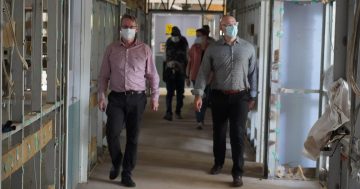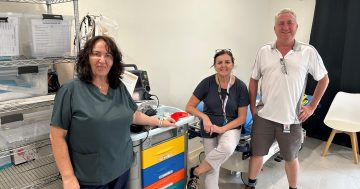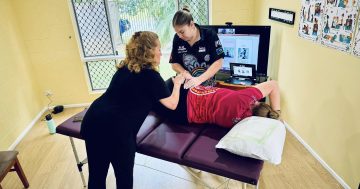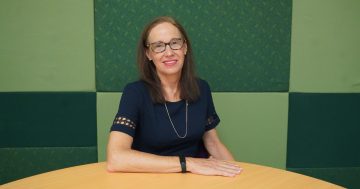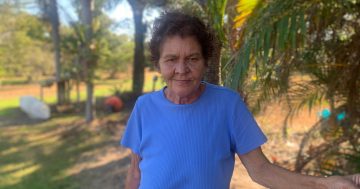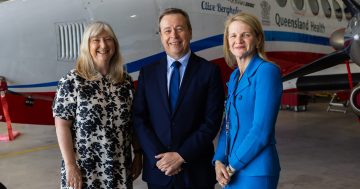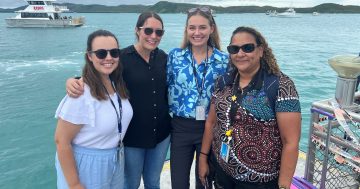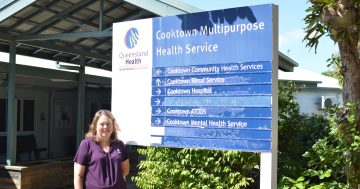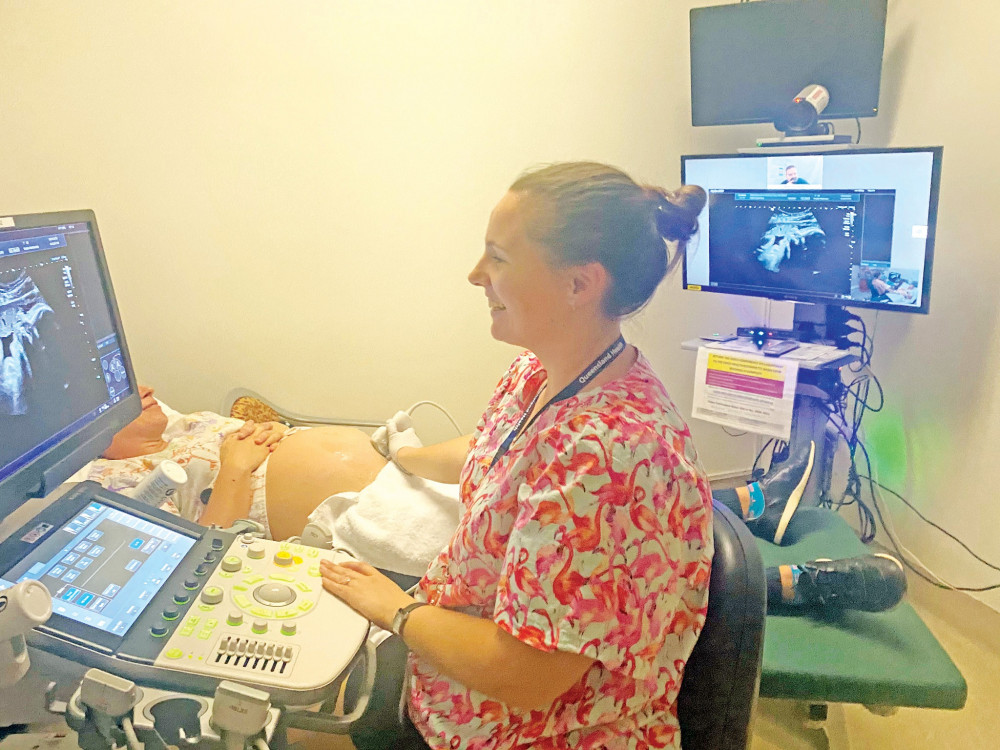
EXPECTING mums are making fewer trips to Cairns as a result of a new service implemented at Weipa Hospital.
Torres and Cape Hospital and Health Service allied health professional lead Amy O’Hara said 88 women had benefitted from the new maternal and foetal ultrasound scanner since it was introduced in May.
“Previously, pregnant women in Cape York communities requiring both specialised and routine maternal and foetal scans would have had to travel to Cairns, Townsville or even Brisbane for the service,” she said.
“But with the introduction of strict lockdowns in First Nations communities across the Far North, this became extremely problematic, especially with the need for people to quarantine in Cairns for 14 days prior to returning home.
“Many of these women were unable to isolate from their other children and it proved difficult for them to isolate in the biosecurity hotel with children.
“Even before the lockdown period, a trip to Cairns for a maternal and foetal ultrasound and an appointment with a specialist often required a minimum three nights stay, which was a significant inconvenience for them and their families.
“This prompted us to look at ways we could undertake these scans and specialist appointments within our own region and provide culturally appropriate care closer to home for our community members.”
Ms O’Hara said telehealth technology allowed medical imaging services at Weipa, including maternal and foetal ultrasounds, to be linked directly with specialists in Cairns, Townsville and Brisbane who were then able to review the scans in real time and provide appropriate advice for ongoing care and management of patients.
“This provides a comprehensive specialist appointment for the patient, reduces patient travel requirements and upskills local staff in complex imaging,” she said.
“In most cases, even if patients travel to Weipa from other communities for their scan, they can have their scan and return home the same day.”
Ms O’Hara said the service had proved so successful, the Torres and Cape HHS was continuing with it despite the easing of travel restrictions to Cape York communities from July.
“The steady expansion of medical imaging services at Weipa, including the introduction of a CT scanner service from early 2021, means even more people will be able to have their scans closer to home and not have to travel outside our region to do so,” she said.
TCHHS chief executive Bev Hamerton said the pandemic lockdown had shown the health service could not rely upon specialists physically visiting the region when there were severe travel restrictions.
“We decided that introducing a higher level of telehealth-delivered care would increase self-sufficiency in our regions and bring care closer to home and this is what we are currently in the process of doing,’’ Ms Hamerton said.
“Critical to the success of this process is the implementation of an integrated multi-disciplinary primary health care patient information system in the Cape York region during 2020-21 to share information between clinicians across a range of clinical disciplines.
“We plan to continue transforming and positioning our health service as a leader in digital rural and remote primary health care and ensure we are in a good position to respond to any future regional crises.’’
Ms Hamerton said some of the changes included:
* Management plans for all vulnerable patients within Torres and Cape (60 per cent of our population)
* Establishment of a centralised Clinical Coordination Hub that works with local teams to assess the required care across a range of medical disciplines. The hub also will continue to identify other areas of clinical care currently sourced from outside the health service that could be delivered internally
* A 75 per cent increase in telehealth appointments, ensuring patients can receive specialist care closer to home.


